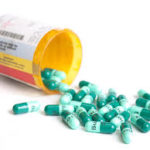 “I only get better when I get antibiotics via a drip.” “Give me the strongest antibiotic that you have!” “Throw the kitchen sink at me!”
“I only get better when I get antibiotics via a drip.” “Give me the strongest antibiotic that you have!” “Throw the kitchen sink at me!”
These are examples of some of the the requests I get from patients on a regular basis, regarding antibiotic therapy.
Having a serious infection is, no doubt, quite a scary thing. And, for many people, their first thought is that they need the most powerful antibiotic available. However, stronger antibiotics are not necessarily better. In fact they may cause more problems, or, sometimes, don’t even work at all!
What is it that makes an antibiotic “strong” anyway?
A “strong” antibiotic is one that is able to kill bacteria that have developed resistance to many first-line antibiotics. Sometimes we refer to these bacteria as being multi-drug resistant (MDR). There are often very few, sometimes just one or two, “strong” or “powerful” antibiotics that are still able to kill these MDR bacteria. In some cases, a “strong” antibiotic is one that has the ability to kill a broad range, or spectrum, of bacteria.
“Strong” is probably not the best adjective to use to describe an antibiotic, as it suggests that there are others that are “weak.” I should instead say broad spectrum (instead of strong), and narrow spectrum (instead of weak). The narrow spectrum antibiotics are just as effective in treating the infections for which they are indicated. For example, penicillin, one of the oldest antibiotics, has a relatively narrow spectrum. One might think that this “simple” antibiotic could never be strong enough for a serious infection. However it turns out to be the most effective antibiotic for many serious infections we treat in the hospital.
How do we choose antibiotics?
Antibiotics are selected based on the most likely bacteria felt to be causing the particular infection. In the early stages, before culture results are obtained to tell us the specific bacteria causing the infection, we often do start with a combination of stronger, or more powerful antibiotics. However, as soon as we get the culture results, antibiotic treatment is simplified, to specifically cover the infecting bacteria.
Why are stronger antibiotics sometimes worst?
1 – They tend to have more side effects. All antibiotics (well…all drugs in general) have a variety of potential side effects. However, many strong antibiotics can cause serious side effects such as kidney failure (sometimes requiring dialysis), hearing loss (sometimes outright deafness if not picked up early), very low blood counts, and neuropathy (nerve damage), among others.
2 – They require closer monitoring with blood tests to check for toxicity. Sometimes blood tests need to be done as frequently as every day, depending on the individual situation.
3 – They tend to be more expensive, some being as much as US$4000.00 per treatment course, and sometimes even more, for patients requiring longer duration of treatment, such as those being treated for bone infection. For people without insurance, these very high costs are prohibitive.
4 – They tend to be more inconvenient to take, in that they often need to be given via an intravenous drip, as opposed to by mouth.
So now you know why stronger antibiotics are not necessarily better. The bottomline is, they have the potential for more serious complications of treatment than their less powerful counterparts.
I wonder what it would be like if, instead of asking me to throw the kitchen sink at them, patients started to ask me to avoid antibiotics, if at all possible, and if not possible, to treat them with the simplest regimen, for the shortest time possible. I think it would be just fantastic.
 Chien-Ming Li says
Chien-Ming Li says
December 1, 2016 at 3:41 pmAntibiotics are vulnerable to abuse because they are drugs of fever, of fear, of prophylaxis, and of promotion.
Best regard,
Chien-Ming Li, IDS of Taiwan.
 infectiousmd says
infectiousmd says
December 2, 2016 at 3:18 amYes, people see antibiotics as a panacea – let me take this “panacea-mycin.” But, as my Infectious Diseases professor Dr Rajendra Kapila liked to say, they are more “gorilla-mycins” than anything! Thank you for your comment Chien-Ming, and thanks for reading the blog!